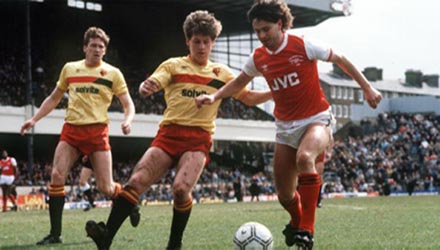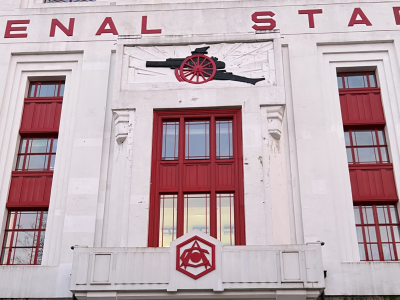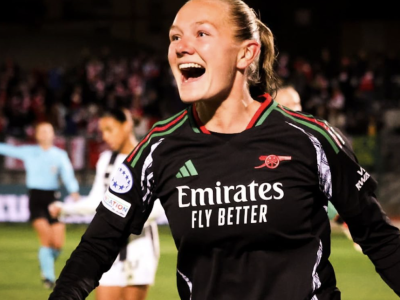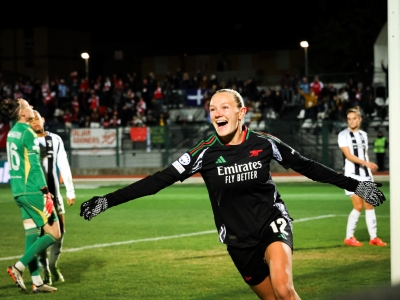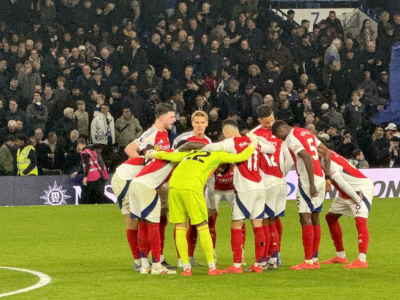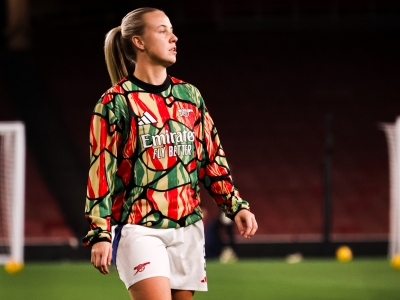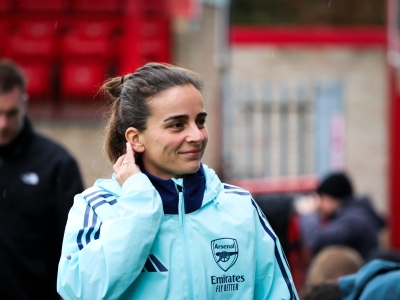Watford F.C. were founded in 1881 as Watford Rovers when the Earl of Essex granted a group of local boys the use of the grounds of Cassiobury House to play Football (Cassiobury House was later demolished in 1909 and the grounds were purchased by Watford Borough Council who created Cassiobury Park). The club were renamed as West Hertfordshire in 1890 joined the Southern League in 1896 and then, on merging with Watford St. Mary’s in 1898 became known as simply Watford Football Club. Watford played Woolwich Arsenal twice in the FA Cup within five seasons, both at the Manor Ground in Plumstead. In February 1906 Arsenal won 3-0 in the Second round of the FA Cup, while in January 1910 Arsenal won again by the same score line in the first round. The two sides however would not meet again in a competitive game for the next seventy years.
Watford joined the Football League in 1920 with the formation of the Third Division and moved to their Vicarage Road home in 1922. After the Third tier of English football was split between North and South, Watford remained in the Third Division South until 1958 when a nationwide third and Fourth Division of the Football League was created, after the regional split was abolished. During that period, noteworthy events for the Hornets include reaching the FA Cup Quarter Final in 1932, suffering a 0-5 defeat to eventual Cup winners Newcastle United at St. James’s Park. Watford switched to the role of giants when featuring in a Pathe piece against non-league Southall in third round of the FA Cup in 1936. Watford also hosted Man United at Vicarage Road in the fourth round in 1950, losing 0-1.
Watford dropped into the fourth tier of English football and remained there for two seasons, finally winning their first promotion after forty years in 1959/60, fired to a fourth place finish in Division Four by former Arsenal forward Cliff Holton who had a record of 84 goals in 120 games for the Hornets between 1958 and 1961. Watford spent nearly a decade in the third tier of English football, the most noteworthy occurrence being the signing of Pat Jennings from Newry as an eighteen year old in 1963. Jennings played one season with Watford (and can be seen in action for the Hornets here against Peterborough in the FA Cup in November 1963) before moving to Spurs and later Arsenal in 1977. This here is Pat’s edition of This is Your Life, when fellow Irishman Eamonn Andrews sprung the red book upon him after Arsenal defeated Spurs in the League Cup in 1983.
Watford were promoted to the second tier as Champions of the old third division in 1968/69. That same season, Watford were drawn away to European Champions Man United at Old Trafford. Prior to the game, manager Ken Furphy’s team talk in full was captured by the BBC. In the event, Watford shocked United by taking the lead with a long range shot after two minutes. Denis Law equalised, but Watford held on for a 1-1 draw and a replay back at Vicarage Road, in which United inflicted a 0-2 defeat. Watford’s year for Cup upsets however would come the following season in 1969/70. After disposing of Bolton in the third round, Watford eliminated top tier Stoke City in a 1-0 win at Vicarage Road.
After beating Gillingham in the fifth round, the Hornets got a plumb tie against Liverpool at Vicarage Road in the Quarter Final. In goal for Watford was future Norwich manager Mike Walker. Barry Davies announced that Mike became a father they day before, however the offspring was not future Spurs goalkeeper Ian, who was born the following year. For Liverpool seeking their first trophy for four season it must have seemed like a gift passage to the Semi Finals, however Watford pulled off a 1-0 win against Bill Shankly’s side to secure their place in the last four. Their prize would be a Semi Final tie against Chelsea at White Hart Lane.
Chelsea at the time were third in the top tier and in the event hammered Watford 5-1 to secure their place in the 1970 FA Cup Final. The night before that final Watford took place in the inaugural FA Cup Third/Fourth place playoff match at Highbury. This oddity of a fixture lasted for five seasons and only 15,105 bothered to turn out for. Watford spent three successive seasons in the second tier, all of which were spent in the bottom half, before dropping back to the third tier at the end of 1971/72 and then a further drop to fourth division after finishing second from bottom of the old third division in 1974/75.
It was during this period however that the club became adopted by Pop superstar Elton John, who was appointed President in 1973 and then Chairman in 1976. Elton’s birth name, as he tries to explain here to Alan Partridge, is Reginald Dwight and has a long association with the game as his cousin Roy Dwight scored, and was later carried off injured, in the 1959 FA Cup Final for Nottingham Forest. Elton was also the co-owner of NASL franchise the LA Aztecs, whose star attractions included George Best, Johan Cruyff and former Ajax and Holland manager Rinus Michels. The franchise however folded in 1981.
Elton however found greater success on this side of the Atlantic with Watford. In 1977, Elton head hunted upcoming manager thirty year old manager Graham Taylor who had won the Fourth Division title by a record number of points under a two-points for a win system in 1975/76. Bertie Mee had just parted company with Arsenal a year earlier and in 1977 wrote a letter to Watford offering his services. Graham Taylor later commented that: ‘neither Elton John nor myself could believe a man of such standing was having to write a letter to try to find a position in the game’. Mee was initially appointed as Graham Taylor’s assistant, given special responsibility for scouting and youth policy (credited with discovering John Barnes) and later on the Watford board of Directors.
Taylor had said of Bertie Mee that he was: ‘the best signing I ever made…instead of Watford having just a crazy pop star as chairman and a young upstart as manager, making all sorts of noises about how they were going to go from the Fourth Division into European football, we had someone who immediately gave credibility to our ambitions’. Watford stormed the Fourth Division in 1977/78, becoming Champions with an eleven point margin over their nearest rivals. In 1978/79, the Hornets beat Gillingham 3-2 away on Match of the Day.
They also developed a reputation as giant killers in the League Cup, disposing of Newcastle in the Second round, before beating Man United 2-1 at Old Trafford with two goals for Luther Blissett n the third round in early October (with post-match interview with Elton John. Watford progressed as far as the Semi Final, where they were eliminated by Brian Clough’s Nottingham Forest. However that season the Hornets achieved back to back promotions, coming runners up in the third tier, one point behind Champions Shrewsbury.
The Hornets however finished in the bottom half of the second tier in 1979/80, though had a run in the FA Cup which included a third round 4-3 win over Non-League giant killers Harlow who disposed of Leicester in the previous round and progressed to thrash top tier Wolves 3-0 away in the fifth round to set up a Quarter Final tie with Cup holders Arsenal, in the first fixture between the two sides for seven decades. Two Frank Stapleton goals gave Arsenal a 2-1 win at Vicarage Road to set up a Semi Final with Champions Liverpool on their way to a third successive FA Cup Final. In 1980/81, Watford signed Arsenal captain Pat Rice and this time made their way to the top half of the second tier, finishing in ninth position.
The Hornets however went on another Cup run, this time in the League Cup, playing out an extraordinary second round tie with Kevin Keegan’s Southampton. At the Dell, Watford suffered a 0-4 defeat at the hands of the Saints with two goals apiece for Nick Holmes and former Arsenal legend Charlie George, leaving the Hornets with a mountain to climb back at Vicarage Road a week later. Watford pulled it back to 2-4 on aggregate with goals from Malcolm Poskett and Ray Train and then added a third through Martin Patching. An own goal from Steve Sims caused Watford a setback, until a minute later Southampton’s Chris Nichol fouled Watford’s Ross Jenkins in the box, leading to Watford’s Ian Bolton putting away from the spot to make it 4-5 on aggregate before Ross Jenkins grabbed Watford’s equaliser to take the tie into extra time where Nigel Callaghan and another for Malcolm Poskett put Watford through 7-5 on aggregate (7-1 on the night)
In 1981/82, Watford carried out their giant killer act again in the FA Cup with a (1-0 win over Man United in the third round at Vicarage Road, followed by another home draw this time to West Ham, which the (Hornets won 2-0, before Leicester City eliminated Watford in the third round. In 1981/82 however Watford, with a side containing an eighteen year old John Barnes, would win the FA Youth Cup defeating a Man United side which included Norman Whiteside and Mark Hughes, 7-6 on aggregate. Barnes would also be a part of the first team that would secured their passage to the top tier, finishing as runners up, beating Leicester on Match of the Day 3-1 in May (a game in which Gary Lineker, playing for Leicester, would hobble off injured) and securing promotion with a 2-0 win over Wrexham at Vicarage Road.
Watford’s first ever game in the top flight had been a 2-0 win for the Hornets against Everton at Vicarage Road, with Watford’s first goal in the top flight scored by Gerry Armstrong fresh from his heroics in Espana ’82, while his compatriot Pat Rice scored to secure all three points. Watford won five of their first seven fixtures in the top tier, with an incredible 8-0 victory over Sunderland at the end of September with four goals from Luther Blissett. The Hornets would move up to second place behind reigning Champions Liverpool by late November after a 4-1 win over Brighton at Vicarage Road.
A week later, Watford would make their first ever visit to Highbury against an Arsenal side languishing in thirteenth position. The Gunners would take the lead with a goal from Stewart Robson, though John Barnes would equalise for Watford. Welsh international Kenny Jackett would put the Hornets ahead. Arsenal would be 1-3 down after John Barnes grabbed a second. Brian Talbot would pull a goal back for the Gunners however John Barnes would complete his hat-trick as Watford would inflict a 2-4 defeat on the Gunners on their first visit to Highbury. Though victory at Highbury would give Watford their fourth straight victory in the League, back to back defeats against fellow title challengers in December – a 0-1 defeat to Man United at Vicarage Road and a 1-3 defeat away at Anfield to Liverpool, meant that Watford would slip to fifth place just ahead of Christmas.
However 3-1 win away at West Brom in April, inflicting a 1-2 defeat on Arsenal’s first League visit to Vicarage Road in late April and 2-1 win over Liverpool securing the runners up spot for Watford in their first season in the top flight of English Football. The close season of 1983 however saw their front man Luther Blissett transferred to AC Milan for £1m. Blissett however would not be a success in the San Siro returning back to Vicarage Road a year on, with a rumour that has developed in the years since that Milan signed Blissett by mistake and intended to sign his team mate John Barnes. Probably one of the most outlandish legacies of Luther Blissett’s time in Italy is that his moniker has been adopted as a ‘nom de plume’ (shared identity) by hundreds of anarchist pranksters under the guise of the ‘Luther Blisset Project’.
In Luther’s absence, Arsenal’s first win over Watford would come the day following Terry Neill’s sacking and Don Howe’s first as caretaker manager a week before Christmas 1983, as Raphael Meade bagged a hat-trick as Arsenal triumphed 3-1. In 1983/84 Watford could only manage a mid-table finish, however played out high scoring games such as a 4-4 draw at home to Everton and a 5-3 win away to Notts County. Watford also enjoyed a run in the UEFA Cup, in the first round pulling back a 1-3 deficit against Bundesliga side Kaiserslauten to win 3-0 at Vicarage Road. Watford lasted until the third round before eliminated by Sparta Prague 2-7 on aggregate.
That season Watford also enjoyed arguably the highest point in their history by reaching the FA Cup Final, along the way disposing of Birmingham City 3-1 away in the Quarter Final and third tier Plymouth Argyle in the Semi Final with a 1-0 win at Villa Park. One week before the FA Cup Final on the last Saturday of the season, Watford inflicted a 1-2 defeat on Arsenal, with Stewart Robson on the Score sheet for the Gunners. Playing his final game in professional football that day would be thirty five year old Pat Rice, who retired at the end of this season, returning to Arsenal the following season as Youth team coach, which he held for the next twelve years, before becoming Arsene Wenger’s assistant in 1996. Elton John, in an interview here with Australian pop show ‘Countdown’, would cite the 1984 FA Cup Final one week after defeating Arsenal as being his proudest moment with Watford.
In the event however, the Hornets went on to lose to Everton 0-2, with one superb banner at the Everton end which read: ‘I Guess That’s Why They Call Us the Blues’ – obviously paraphrasing the title of Elton’s 1983 hit single. The ’84 Cup Final however would be the peak of Graham Taylor and Elton John’s first reign at Vicarage Road and in the remaining five seasons Watford spent in the top flight during that period, would only enjoy just one further top half finish. The Hornets would however remain a bogey side for the Arsenal, though the Gunners achieved their first victory at Vicarage Road in early September 1984 with a 4-3 win secured by goals from Brian Talbot (who would be transferred to Vicarage Road the following season), Tony Woodcock and two for Charlie Nicholas.
The return fixture back at Highbury a few days before Christmas 1984 however ended in a 1-1 draw (the only draw ever played out between the two sides), with Ian Allinson on the score sheet for the Gunners. The following season, after the TV black out of the first half of the 1985/86 season one of the first games back on the telly would be Liverpool’s visit to Vicarage Road on a Live Match of the Day on a Sunday afternoon in early January 1986. Jimmy Hill’s guest in the studio would be former Arsenal manager Bertie Mee, now a Watford Director. The Hornets took the lead with a goal from Kenny Jackett, before Ian Rush and two goals from Paul Walsh inflicted a 2-3 defeat on the Hornets.

